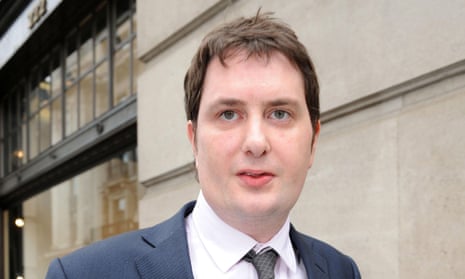George Osborne’s psychiatrist brother has been struck off after a two-year relationship with a vulnerable patient he had been treating for anxiety and depression.
A medical tribunal found that the behaviour of Dr Adam Osborne was “profoundly unacceptable” and ruled that his fitness to practise was impaired by reason of misconduct.
The hearing, which began in Manchester on Monday, heard that when Osborne ended the relationship last February, the woman – referred to as Patient A – tried to kill herself days later.
Dr Nigel Callaghan, the chair of the medical tribunal, ruled on Thursday that Osborne had “showed a blatant disregard for the fundamental tenets of the medical profession” and should be struck off the medical register.
Osborne’s behaviour was “fundamentally incompatible” with the medical profession and there was a risk that he would reoffend, Callaghan said.
Patient A had been under Osborne’s care at a private practice in central London between February 2011 and late 2014.
When Patient A made a complaint to the General Medical Council (GMC), Osborne begged her to retract it, telling her in threatening emails over a 10-day period that it would “destroy” his family, adding: “I will make sure you pay.”
Osborne was not present at the hearing, but he admitted that he had been in an “inappropriate emotional and sexual relationship” with the woman.
During the hearing, a statement was read out on behalf of Osborne. It revealed that he had been attending weekly therapy sessions and had undergone “boundary training” since the allegations were made. He also said that over the past few months, Osborne had been to Calais to help out in the refugee camps.
“I want to start by saying that it was never my intention to hurt anyone, although I can now clearly see that my irresponsible behaviour has caused a great deal of distress and harm to people that I genuinely care about, in particular my family and Patient A,” he said.
Osborne said his therapy “has helped me to fully reflect on my behaviour and I understand that professional boundaries are in place to protect the doctor and the patient, and how dangerous it is to break them”.
He added: “These are to protect the clinician and patient and should always be respected no matter which emotions, justifications or rationalisations might seem tempting or overriding at the time.”
Osborne has 28 days to appeal the ruling by the medical practitioners tribunal service.
Handing down his ruling, Callaghan said the tribunal had considered a lesser sanction – such as placing conditions on his registration or a suspension – but that would not prevent the risk of the doctor repeating the behaviour.
“The tribunal has determined that Dr Osborne has shown a blatant disregard for the fundamental tenets of the medical profession. His behaviour towards Patient A caused her harm and the tribunal could not be satisfied that there would be no repetition of this misconduct,” Callaghan said.
He added that Osborne’s misconduct appeared to have damaged Patient A’s ability to trust the medical profession as a whole.
“Although Dr Osborne’s view was that any harm to Patient A was unintentional, the tribunal took the view that the vulnerability of Patient A was clearly evident from the outset and Dr Osborne was aware or should have been aware that his actions would have had a significant detrimental effect on Patient A’s mental state and well being,” Callaghan said.
Osborne, who qualified as a doctor in 2003, is five years younger than his brother the chancellor and one of four sons born to Sir Peter Osborne, who co-founded the wallpaper company Osborne & Little.
It is not the first time Osborne has been cast out by his profession. In 2010, the doctor was suspended for six months by the General Medical Council after he admitted falsifying a prescription for a cocaine-addicted escort girl.
He and his wife, Rahala Noor, a cosmetic surgeon, met as students and he converted to Islam, taking the name Mohammed, before their wedding.
Following the recent allegations, Osborne, who lives in Shepherd’s Bush, west London, stepped down as a director of EliteMed.
He said in the statement: “I realise that there is never any justification for breaking the boundaries of established good medical practice in regards to the doctor patient relationship, and it is never in the best interests of the patient to do so.
“I have found medicine to be a very rewarding and fulfilling career and I am very saddened that this career is now inevitably over.”
He added that he had not contested the allegations and fully accepted the findings of the fitness to practise panel.
